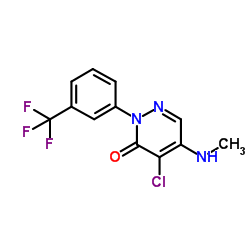Carotenoid deficiency triggers autophagy in the model green alga Chlamydomonas reinhardtii.
María Esther Pérez-Pérez, Inmaculada Couso, José L Crespo
文献索引:Autophagy 8(3) , 376-88, (2012)
全文:HTML全文
摘要
All aerobic organisms have developed sophisticated mechanisms to prevent, detect and respond to cell damage caused by the unavoidable production of reactive oxygen species (ROS). Plants and algae are able to synthesize specific pigments in the chloroplast called carotenoids to prevent photo-oxidative damage caused by highly reactive by-products of photosynthesis. In this study we used the unicellular green alga Chlamydomonas reinhardtii to demonstrate that defects in carotenoid biosynthesis lead to the activation of autophagy, a membrane-trafficking process that participates in the recycling and degradation of damaged or toxic cellular components. Carotenoid depletion caused by either the mutation of phytoene synthase or the inhibition of phytoene desaturase by the herbicide norflurazon, resulted in a strong induction of autophagy. We found that high light transiently activates autophagy in wild-type Chlamydomonas cells as part of an adaptation response to this stress. Our results showed that a Chlamydomonas mutant defective in the synthesis of specific carotenoids that accumulate during high light stress exhibits constitutive autophagy. Moreover, inhibition of the ROS-generating NADPH oxidase partially reduced the autophagy induction associated to carotenoid deficiency, which revealed a link between photo-oxidative damage, ROS accumulation and autophagy activation in Chlamydomonas cells with a reduced carotenoid content.
相关化合物
| 结构式 | 名称/CAS号 | 分子式 | 全部文献 |
|---|---|---|---|
 |
乙腈中氟草敏溶液
CAS:27314-13-2 |
C12H9ClF3N3O |
|
A new F131V mutation in Chlamydomonas phytoene desaturase lo...
2014-01-01 [PLoS ONE 9(6) , e99894, (2014)] |
|
Novel bioassay for the discovery of inhibitors of the 2-C-me...
2014-01-01 [PLoS ONE 9(7) , e103704, (2014)] |
|
Functional characterization of the two ferrochelatases in Ar...
2015-02-01 [Plant Cell Environ. 38(2) , 280-98, (2015)] |
|
Iron is involved in the maintenance of circadian period leng...
2013-03-01 [Plant Physiol. 161(3) , 1409-20, (2013)] |
|
Norflurazon and simazine removal from surface water using a ...
2011-10-01 [Bull. Environ. Contam. Toxicol. 87(4) , 426-30, (2011)] |